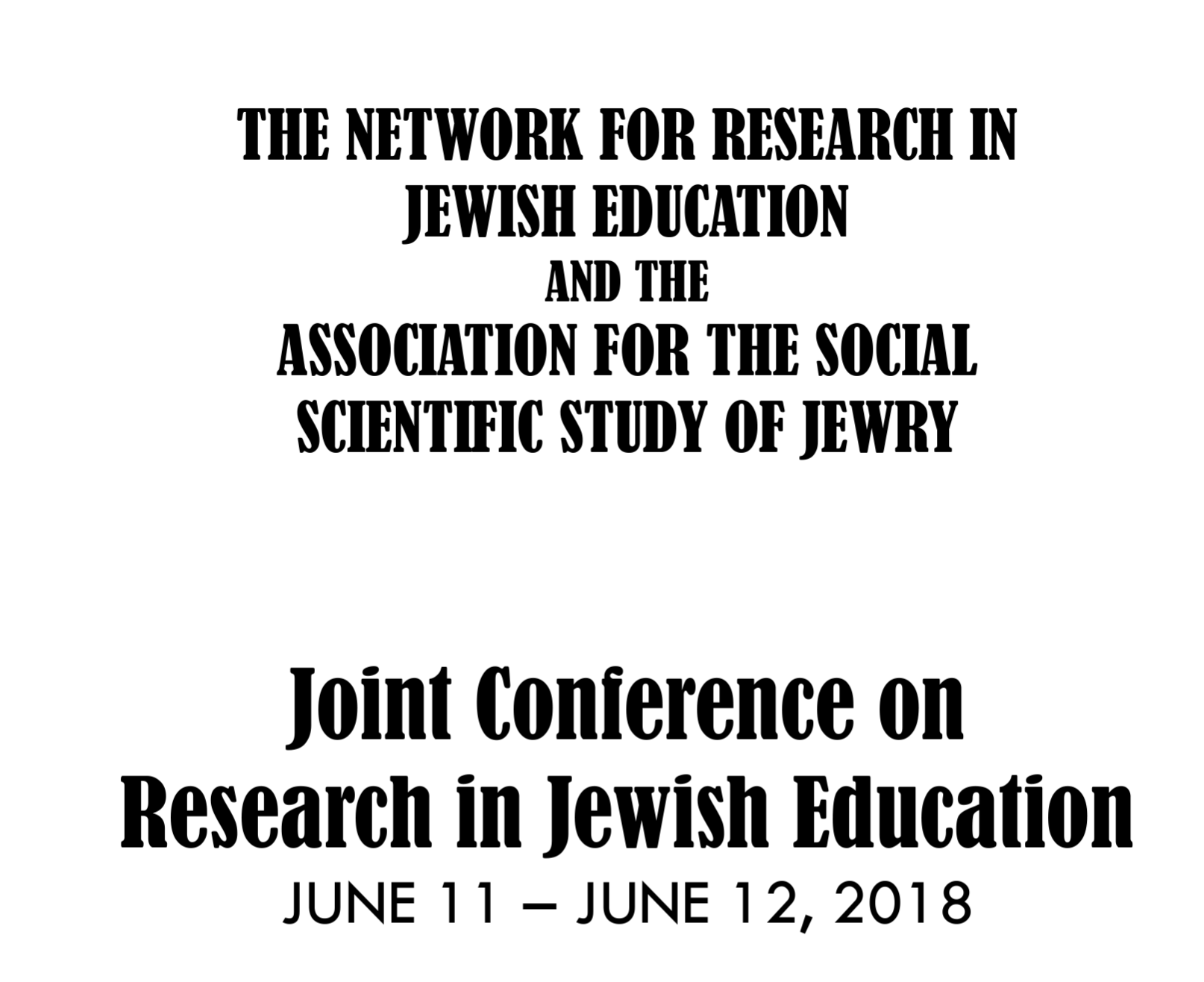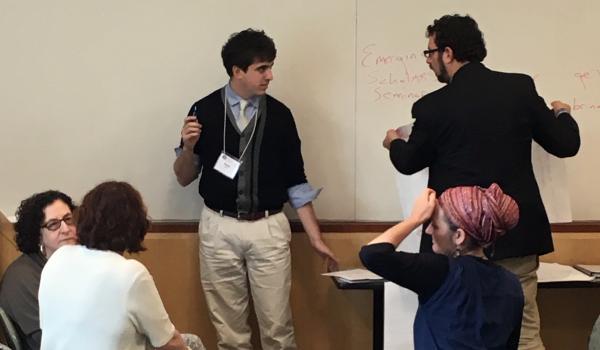Despite being three years into a doctorate, I’m still not sure I fully understand what it means to be a doctoral student. The thing about this undertaking is that the first couple of years of a doctorate have not really felt much different than my master’s degree classes, which did not really differ from any other time I was a student. Basically since 1984, when I started kindergarten, I’ve been taking classes, doing homework and writing papers — I’ve been “doing school.” The only difference is that the looming question of “What am I going to write about for my dissertation?” has occasionally emerged as a guide for class projects. But my answer, usually something about “teaching Jewish texts,” has simply been a beacon, a broad topic that needs refinement.
Yet now I am in the final throes of course work, in the form of two independent research projects. I can begin to taste the way the dissertation will be different: I will no longer have a professor who will force me to hand in a paper by a certain date (not to mention feed me readings and assignments). Rather, I am moving toward research and writing on my own schedule. It feels like diving into a pool without being able to see the water, just a void.
Given my precarious position, on the precipice of becoming a lonely, independent scholar, the Emerging Scholars Mentoring Seminar sponsored by CASJE at the Network for Research in Jewish Education conference could not have come at a better time. The program, which paired doctoral students and early career EdDs/PhDs with veteran mentor scholars, provided an excellent opportunity for collegiality, rich discussion, and over four hours of serious mentorship. As a seminar participant, I listened to veteran scholars discuss their process, met other graduate students in similar positions to my own, workshopped a dilemma with the whole group, and spent significant one-on-one time drilling down into a topic of my choosing with my mentor.
In my own situation, I am working fervently on these two independent research projects, completing my qualifying paper (my program opts for a paper that will serve as part of the dissertation’s literature review), and my dissertation proposal. While these projects are often completed consecutively, I wanted to make sure I could backward design from a clear dissertation question. While I have been circling around a topic for several years, my question had not yet fully taken form.
Thankfully I was paired with a mentor, Rebecca Shargel of Towson University, who simultaneously challenged me and listened to me. We sat together in a conference room on the George Washington University campus and talked out the constellation of ideas and questions that were swirling around my head, filling a white board with a map of my questions until I could offer an elevator pitch of a question. I want to understand what teachers who use Jewish texts as their medium for teaching think happens for their students over the text. Why do they use text? And, how, if at all, are these ideas reflected in the student experience?
Despite the size and breadth of what counts as Jewish education, very few graduate students and dedicated professors study the field. Moreover, many of the graduate students, like myself, work in the field concurrently. As a result, the opportunity to bounce ideas off people who have a shared vocabulary, to feel part of a cohort, and to receive meaningful mentorship is rare. I can already feel the impact of the Emerging Scholars Seminar on my work. It offered an important opportunity for fellowship and intellectual growth in a surprisingly short amount of time.
Rabbi Joshua Ladon is West Coast Director of Education for Shalom Hartman Institute of North America. He is currently a Doctoral student in Jewish Education at the Jewish Theological Seminary in New York.



